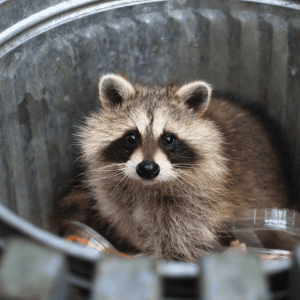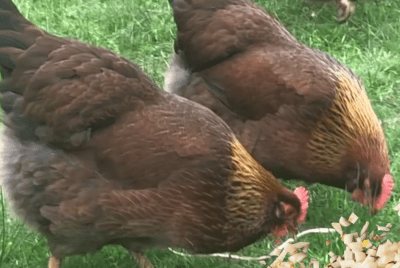Protect Coop From Raccoons
In This article as will talk about effective strategies to ‘Protect Coop from Racoons’.
There’s a growing threat to your chicken coop that you need to be aware of: raccoon predators. These clever and agile creatures are notorious for raiding coops and causing harm to your beloved chickens. In this blog post, we’ll discuss effective strategies and measures you can take to protect your coop from raccoon attacks. By implementing these preventative steps, you can ensure the safety and well-being of your feathered friends.

Key Takeaways:
- Secure Your Coop: Make sure your coop is raccoon-proof by repairing any holes or weak spots that these predators could exploit.
- Install Hardware Cloth: Use hardware cloth with small openings to reinforce doors, windows, and vents to prevent raccoons from gaining access.
- Lock Up at Night: Ensure your coop is securely locked up at night, as raccoons are primarily nocturnal predators.
- Remove Temptations: Keep food sources like pet food and compost bins securely stored to deter raccoons from being attracted to your coop.
- Use Motion-Activated Lights: Install motion-activated lights around your coop to scare off raccoons and other potential predators during the night.
In What Ways Are Raccoons Deadly to Chickens
Raccoons can pose a significant threat to chickens, primarily because they are opportunistic predators and can be quite clever. Here are some ways they can harm chickens:
- Predation: Raccoons are known to kill chickens for food. They usually target the neck and head, often leaving behind a grisly scene.
- Egg Theft: Raccoons are adept at stealing and eating eggs from the coop, reducing your flock’s productivity.
- Coop Break-Ins: With their dexterous paws, raccoons can open latches or squeeze through small openings. They can climb and dig, making it crucial to secure coops thoroughly.
- Disease Transmission: Raccoons can carry diseases such as rabies and parasites that can infect chickens, which can also potentially affect humans interacting with the flock.
To protect chickens from raccoons, consider fortifying the coop with strong materials, securing doors with raccoon-proof locks, and possibly using electric fencing or motion-activated lights to deter these nocturnal intruders.
Fortifying Your Coop
It’s necessary to take proper precautions when protecting your coop from raccoon predators. Raccoons are notorious for their persistence and cleverness when it comes to finding a way into a chicken coop, so fortifying your coop is crucial.
Coop Construction Best Practices
Any coop construction should prioritize security. Make sure your coop is sturdy, with no weak points that raccoons can exploit. Use hardware cloth with small openings to prevent raccoons from squeezing through or tearing the material. Additionally, consider adding a skirt of hardware cloth around the perimeter of the coop to deter digging.
Essential Materials for Raccoon-Proofing
Fortifying your coop with the right materials is key to keeping raccoons out. Essential materials include hardware cloth, locks, and metal flashing. Hardware cloth is a durable wire mesh that raccoons can’t easily break through, while locks and metal flashing provide additional security to prevent any potential entry points.

Deterrents and Preventative Measures to ‘Protect Coop from Racoons’
Using Natural Raccoon Repellents
While raccoons can be persistent pests, there are natural repellents you can use to keep them away from your coop.
For example, scattering cayenne pepper or planting marigolds around the perimeter of your coop can help deter raccoons due to their strong smell that raccoons find unpleasant.
Implementing Effective Fencing Strategies
Natural repellents can be helpful, but implementing effective fencing strategies is crucial to keeping raccoons out of your coop. Natural deterrents like a fence with a dig-proof barrier or an electric fence can act as a physical barrier that prevents raccoons from gaining access to your coop.
A sturdy fence that is at least 6 feet tall, with locks and with no gaps larger than 3 inches, can help protect your coop from raccoon predators.
Additionally, regularly inspecting the fence for any signs of wear or damage and fixing them immediately can help maintain its effectiveness.
Monitoring and Maintenance
Regular Coop Inspection Routines
Despite your best efforts to secure your coop, it is crucial to stay vigilant and conduct regular coop inspections. One of the most effective ways to protect your flock from raccoon predators is to establish a routine where you check the coop for signs of damage or potential entry points on a weekly basis. Look for any holes or gaps in the fencing, loose wires, or evidence of digging near the coop.
Immediate Action Steps After a Raccoon Encounter
One important aspect of protecting your coop from raccoon predators is knowing what to do immediately after encountering one. If you suspect a raccoon has been near your coop or have spotted one in the vicinity, it’s crucial to take immediate action. Safeguard your flock by securing all doors and windows of the coop, checking for any breaches in security, and ensuring that all feed is stored in predator-proof containers.

Encounter: Raccoons are opportunistic predators and can easily break into coops if given the chance. If you come face to face with a raccoon near your coop, do not attempt to approach or corner it. Instead, make loud noises, shine bright lights, or use motion-activated devices to scare it away. Contact local wildlife authorities if the situation escalates or poses a threat to your flock.
Engaging With Community Resources
Learning From Local Farmers and Experts
Unlike other predators, raccoons can be quite crafty and relentless when it comes to targeting your coop. Learning from local farmers and experts who have experience dealing with raccoon predators can provide valuable insights and tips on how to protect your coop effectively. They may share strategies on fortifying your coop, setting traps, or using natural deterrents to keep raccoons at bay.
Accessing Support and Supplies When Needed
For accessing support and supplies when needed, it’s important to build a network within your community.
Engaging with local farmers, hardware stores, and animal control services can provide you with the necessary resources to address any raccoon threats promptly.
Whether you need sturdy locks, reinforcements for your coop, or professional assistance in removing raccoons, having a support system in place can make all the difference in protecting your flock.
Experts recommend establishing relationships with suppliers who offer high-quality products and services tailored to deterring raccoons. In cases of infestation, having access to professionals who specialize in wildlife removal can ensure a swift and safe resolution to the problem, safeguarding both your coop and your chickens.
To wrap up about ‘Protect Coop from Racoons’
On the whole, protecting your coop from raccoon predators doesn’t have to be complicated or expensive. By implementing simple and effective measures like securing the coop with sturdy locks, installing motion-activated lights, and trimming nearby trees, you can create a safe and secure environment for your chickens. Regularly inspecting the coop for any potential entry points and promptly addressing them can also help deter raccoons from targeting your flock. With these strategies in place, you can enjoy peace of mind knowing that your chickens are well protected from these cunning predators.’
You Might also Enjoy these Articles:
Squirrel Proofing Your Chicken Coop
Benefits of Marigolds in Your Coop Environment
10 Effective ways to Keep Snakes Out of Your Coop
Keep snakes out of your chicken coop
FAQ’s on ‘Protect Coop from Racoons’
Q: Why is it important to protect your coop from raccoon predators?
A: Raccoons are intelligent and crafty animals that can easily break into coops to harm or kill chickens. Protecting your coop is important to ensure the safety of your feathered friends.

Q: How can I raccoon-proof my coop?
A: Secure your coop with sturdy hardware cloth, lock all doors and openings at night, install motion-activated lights or alarms, and remove any potential food sources that may attract raccoons.
Q: What are some signs that raccoons are targeting my coop?
A: Look out for tracks near your coop, missing eggs or chickens, scattered feathers, or signs of tampering with locks or latches. These could indicate raccoon activity.
Q: Are there any natural deterrents to keep raccoons away from my coop?
A: Yes, you can use natural repellents like predator urine, ammonia-soaked rags, or cayenne pepper around the perimeter of your coop to deter raccoons.
Q: What should I do if a raccoon manages to breach my coop?
A: Remain calm, safely remove all chickens from the coop, repair any damage, and reinforce security measures. Consider contacting a professional wildlife removal service if the problem persists.











